Uncategorized
-
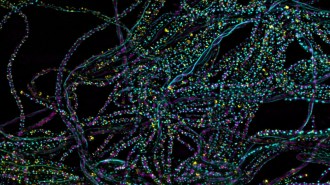 Chemistry
ChemistryOne photon is all it takes to kick off photosynthesis
A single particle of light is the spark that begins the process of turning light to chemical energy in photosynthetic bacteria, a new study confirms.
-
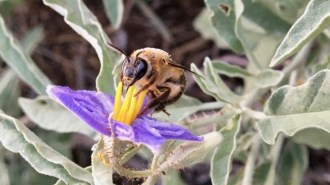 Life
Life‘Polyester bees’ brew beer-scented baby food in plastic cribs
Ptiloglossa bees’ baby food gets its boozy fragrance from fermentation by mysteriously selected microbes.
By Susan Milius -
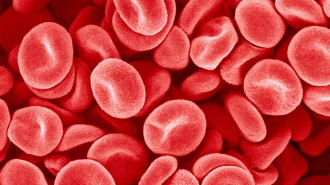 Health & Medicine
Health & Medicine‘In the Blood’ traces how a lifesaving product almost didn’t make it
There’s plenty of drama in Charles Barber’s new book, which explores why a blood-clotting invention was initially dismissed.
By Meghan Rosen -
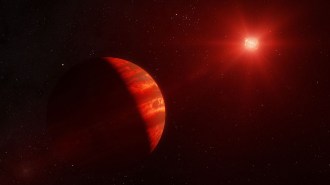 Astronomy
AstronomyJupiter-sized planets are very rare around the least massive stars
A six-year search of 200 nearby low-mass red dwarf stars found no Jupiter-like planets, boosting the standard theory for how such planets form.
By Ken Croswell -
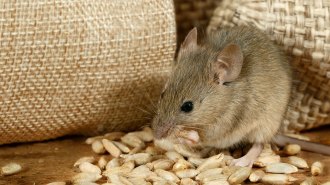 Animals
AnimalsCamouflaging wheat with a wheat smell could be a new approach to pest control
Wheat fields coated in wheat germ oil confuse the noses of mice, reducing seed loss by more than 60 percent, a new study finds.
-
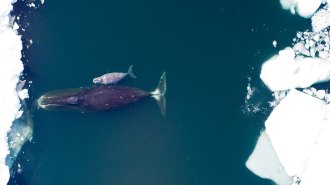 Animals
AnimalsBowhead whales may have a cancer-defying superpower: DNA repair
Bowhead whale cells repair damaged DNA exceptionally well, an ability that could prevent cancer and help the marine mammals live for centuries
By Meghan Rosen -
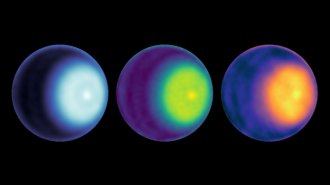 Space
SpaceA cyclone has been spotted swirling over Uranus’ north pole for the first time
Voyager 2 hinted at a cyclone at Uranus’ south pole. Now Earth-based observations give the first direct evidence of a storm at the ice giant’s north pole.
-

Quantum computing may break the internet
Editor in chief Nancy Shute discusses internet security and the development of new quantum-proof encryption methods.
By Nancy Shute -
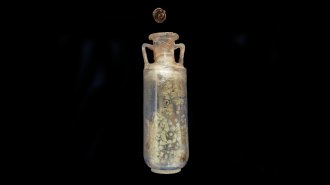 Archaeology
ArchaeologyAn old perfume bottle reveals what some ancient Romans smelled like
Chemical analyses reveal that an unopened flask of perfume from 2,000 years ago contained patchouli, a common ingredient in modern perfumes.
-

-
 Climate
ClimateWildfire smoke is blanketing the U.S. East Coast. It won’t be the last time
Climate change will continue to exacerbate fire risk across the world’s boreal forests, making events like the dangerous smoke over the U.S. East Coast more common.
-
 Environment
EnvironmentRising groundwater threatens to spread toxic pollution on U.S. coastlines
Sea level rise is pushing groundwater into shallower layers of earth, threatening to spread hazardous chemicals from contaminated soils.
By Nikk Ogasa